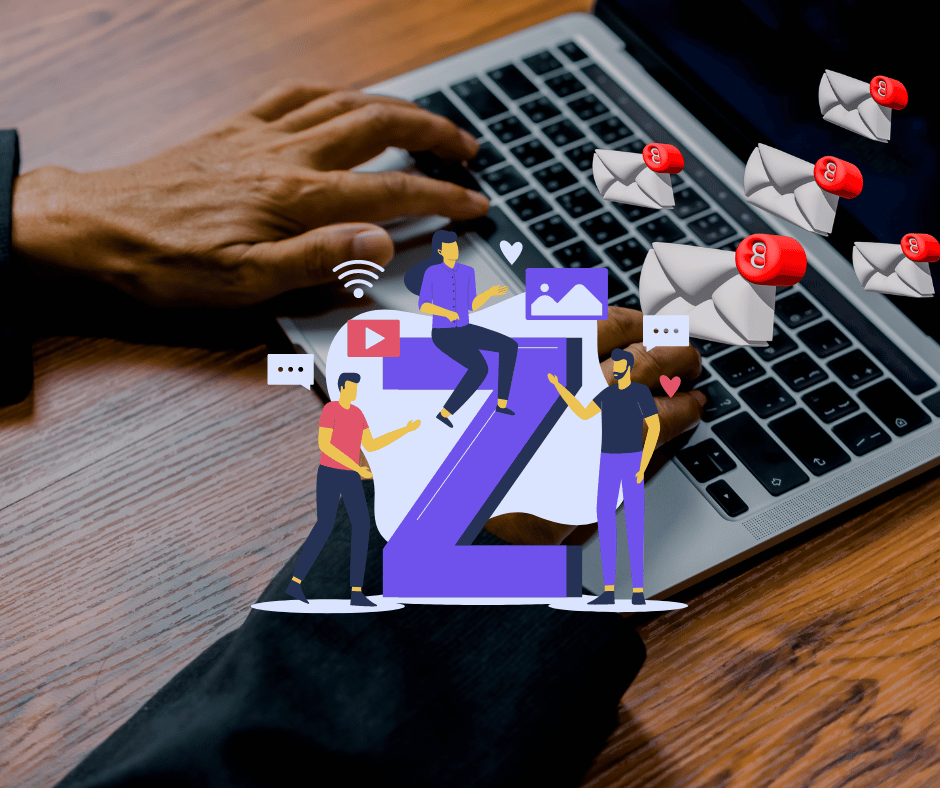
Gen Z, typically defined as individuals born between the mid-1990s and early 2010s, represents a crucial demographic for businesses aiming to secure long-term customer loyalty. As digital natives, Gen Z individuals are highly adept at navigating online platforms and are accustomed to tailored digital experiences. Understanding their preferences and behavior is fundamental to devising successful marketing strategies.
Understanding Gen Z Behavior
Before delving into email marketing tactics, it’s essential to comprehend the behavior of Gen Z consumers. Unlike previous generations, Gen Z prioritizes authenticity, social responsibility, and personalized experiences. They value brands that align with their beliefs and demonstrate genuine care for societal issues. Moreover, Gen Z individuals exhibit a shorter attention span and prefer concise, visually appealing content.
The Power of Email Marketing
Despite the rise of social media and other digital channels, email marketing remains a cornerstone of successful marketing campaigns. Research indicates that email marketing boasts a higher return on investment (ROI) compared to other platforms, making it an invaluable tool for engaging Gen Z consumers. Email allows for direct communication with individuals, fostering a sense of exclusivity and personal connection.
Crafting Engaging Email Content
To capture the attention of Gen Z recipients, email content must be compelling and relevant. Incorporating visually appealing elements such as images and videos can enhance engagement levels. Additionally, leveraging concise and impactful copywriting is crucial, as Gen Z individuals value authenticity and transparency. Including user-generated content and testimonials can further bolster credibility and resonate with this demographic.

Personalization and Segmentation
One-size-fits-all approaches are ineffective when targeting Gen Z consumers. Personalization is key to capturing their interest and fostering brand loyalty. Utilizing data analytics to segment email lists based on demographic information, purchase history, and browsing behavior enables marketers to deliver tailored content that resonates with individual preferences. Personalized subject lines and recommendations based on past interactions can significantly improve open and click-through rates.
Leveraging Social Proof
Gen Z individuals heavily rely on social proof when making purchasing decisions. Incorporating social proof elements such as customer reviews, ratings, and endorsements within email campaigns can instill confidence and trust in the brand. Highlighting user-generated content and success stories showcases real-life experiences, fostering authenticity and credibility.
Building Trust and Authenticity
In an era plagued by skepticism and distrust, establishing trust is paramount for brands seeking to engage Gen Z consumers. Transparency and authenticity should underpin all communication efforts, with brands openly addressing their values, mission, and practices. By demonstrating a genuine commitment to social responsibility and ethical business practices, brands can cultivate a loyal following among Gen Z individuals.
Optimizing for Mobile Experience
Given Gen Z’s reliance on smartphones for online interactions, optimizing email campaigns for mobile devices is imperative. Emails should be mobile-responsive, ensuring seamless viewing and navigation across various screen sizes. Shorter subject lines and concise content are preferable for mobile users, enabling quick consumption and engagement on the go.
Analyzing and Iterating
Continuous analysis and iteration are essential components of a successful email marketing strategy targeting Gen Z. Monitoring key performance metrics such as open rates, click-through rates, and conversion rates provide valuable insights into campaign effectiveness. A/B testing various elements such as subject lines, content formats, and calls to action enables marketers to refine their approach and maximize engagement.
You Can Also Read: Choosing the Best Finance Tracker App
In conclusion, email marketing offers unparalleled opportunities to unlock Gen Z loyalty by delivering personalized, authentic, and engaging content. By understanding the unique preferences and behavior of this demographic, marketers can tailor their email campaigns to resonate with Gen Z individuals effectively. Embracing authenticity, personalization, and social responsibility can foster lasting connections and drive brand loyalty in the digital age.
FAQs
1. How important is personalization in email marketing for Gen Z?
Personalization is paramount for engaging Gen Z consumers, as they value tailored experiences that resonate with their individual preferences and interests. By leveraging data analytics to personalize email content and recommendations, brands can significantly enhance engagement levels and foster loyalty among Gen Z individuals.
2. What role does social proof play in email marketing campaigns targeting Gen Z?
Social proof plays a crucial role in building trust and credibility with Gen Z consumers. Incorporating elements such as customer reviews, ratings, and user-generated content within email campaigns can instill confidence in the brand and influence purchasing decisions. Highlighting authentic experiences from real customers resonates with Gen Z’s preference for authenticity and transparency.
3. How can brands optimize email campaigns for mobile users?
To optimize email campaigns for mobile users, brands should ensure that emails are mobile-responsive, with content and design elements adapting seamlessly to various screen sizes. Shorter subject lines and concise content are preferable for mobile users, enabling quick consumption and engagement on the go. Testing email layouts and formats across different devices can help identify areas for improvement and enhance the mobile experience.
4. What strategies can marketers employ to build trust and authenticity with Gen Z consumers?
To build trust and authenticity with Gen Z consumers, marketers should prioritize transparency and ethical business practices. Communicating openly about the brand’s values, mission, and social responsibility initiatives fosters a sense of authenticity and credibility. Incorporating user-generated content, testimonials, and success stories within email campaigns showcases real-life experiences and reinforces the brand’s commitment to authenticity.
5. How can marketers measure the effectiveness of email marketing campaigns targeting Gen Z?
Marketers can measure the effectiveness of email marketing campaigns targeting Gen Z by monitoring key performance metrics such as open rates, click-through rates, and conversion rates. A/B testing various elements such as subject lines, content formats, and calls to action allows marketers to identify which strategies resonate most effectively with Gen Z individuals. Continuous analysis and iteration based on performance data enable marketers to refine their approach and maximize engagement.